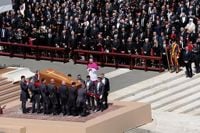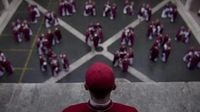On the afternoon of May 7, 2025, cardinals from around the globe will gather under the renowned frescoes of Michelangelo in the Sistine Chapel to elect a new leader of the Catholic Church. This conclave comes just 16 days after the death of Pope Francis, who was buried on April 26, 2025, in the Basilica of Santa Maria Maggiore in Rome, Italy. The upcoming election marks a significant moment in the history of the Vatican, as it will determine the successor to one of the most influential pontiffs in modern times.
The conclave will begin with a special mass at 10 AM in St. Peter's Basilica on the same day, followed by a prayer in the Pauline Chapel of the Vatican at 4:30 PM. Only 133 of the Church's 252 cardinals are expected to participate, as only those under 80 years old are eligible to vote. Initially, there were 135 eligible cardinals, but two will not attend due to health reasons, including Cardinal Antonio Cañizares from Spain.
The diversity among the voting cardinals is notable. Of the 133 eligible voters, 53 are European, 37 hail from the Americas (16 from North America, 4 from Central America, and 17 from South America), 23 are Asian, 18 are African, and 4 are from Oceania. Brazil, the country with the largest number of Catholics, will have eight representatives in the conclave, all under 80 years old. Notable Brazilian cardinals include Dom Sérgio da Rocha, the Archbishop of Salvador, and Dom Odilo Scherer, the Archbishop of São Paulo.
As the cardinals prepare to cast their votes, discussions around potential candidates have intensified. Among the favorites to succeed Pope Francis are Cardinal Pietro Parolin, the current Secretary of State of the Vatican, and Cardinal Matteo Zuppi, the Archbishop of Bologna. Parolin has been a prominent figure in Vatican diplomacy since 2013, recognized for his expertise in Middle Eastern affairs and his role in restoring U.S.-Cuba relations in 2015. However, some experts argue that his bureaucratic image may hinder his chances of becoming pope.
On the other hand, Cardinal Zuppi is seen as a strong candidate due to his extensive diplomatic experience and his role in the Community of Santo Egídio, an organization known for its peace efforts. Zuppi was instrumental in mediating the peace agreement that ended a brutal civil war in Mozambique in 1992. His ability to connect with both Catholics and non-Catholics has made him a respected figure, further enhancing his candidacy.
Another contender is Cardinal Pierbattista Pizzaballa, who has led the Latin Patriarchate of Jerusalem since 2016. Pizzaballa is known for his calls for peace in conflict-ridden regions and has gained recognition for his humanitarian efforts amidst the ongoing Israel-Hamas conflict. His unique background and spiritual depth could position him as a surprising candidate in the conclave.
Cardinal Luis Antonio Tagle, the former Archbishop of Manila, is also in the running. Known for his commitment to social justice and his advocacy for the poor, Tagle has been dubbed the "Asian Francis" due to his similar pastoral style. He is considered a strong candidate for bridging the gap between traditionalists and progressives within the Church.
As the conclave approaches, the atmosphere is charged with anticipation. The cardinals will be sworn to secrecy, a tradition that underscores the importance of the election. The term "conclave" itself derives from the Latin "cum clave," meaning "with key," which refers to the isolation imposed on the cardinals during the voting process. They will remain cut off from the outside world, prohibited from using cell phones or accessing the internet, and will stay at the Casa Santa Marta until a new pope is elected.
Voting will occur through a secret ballot, with four votes held each day—two in the morning and two in the afternoon—until a candidate receives the required two-thirds majority, currently set at 89 votes. If no pope is elected after three days, the cardinals will take a break for prayer and discussion before continuing with the voting process.
Once a candidate is chosen, he will be asked if he accepts the papacy and what name he will adopt. Following this, he will retire to the "Room of Tears" to don the papal vestments. Finally, the new pope will appear on the balcony overlooking St. Peter's Square, where a cardinal will announce, "Habemus Papam!" (We have a pope!), signaling to the world the conclusion of the conclave.
The upcoming conclave not only represents a pivotal moment for the Catholic Church but also reflects the evolving dynamics within the Church's leadership. With a diverse group of cardinals and a range of potential candidates, the election promises to be closely watched by Catholics and non-Catholics alike, as the new pope will undoubtedly shape the future direction of the Church.


